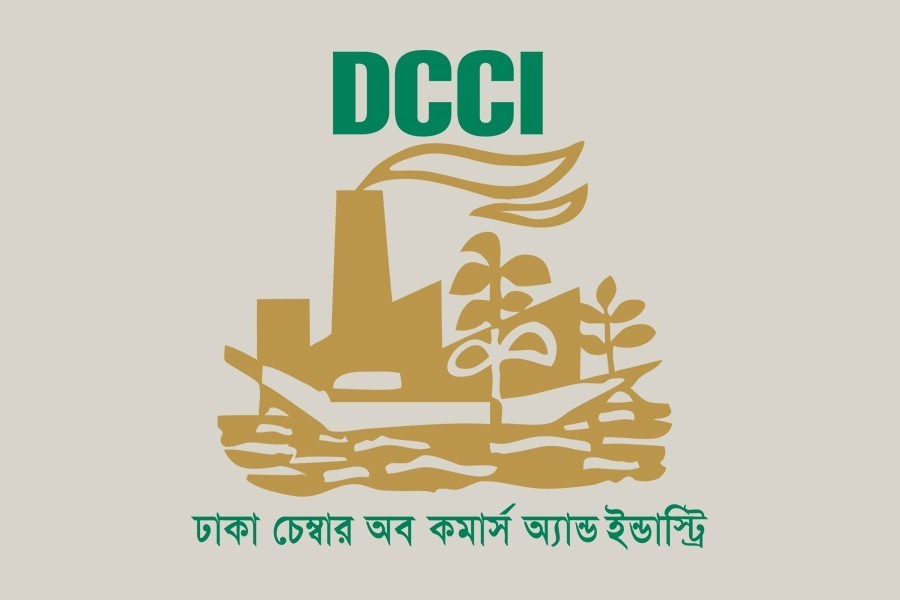Bangladesh needs to develop alternative sources of financing including bonds to meet its future infrastructure investment needs, experts said on Sunday.
At the same time, the private sector needs to play a bigger role in such infrastructure investments, they said.
The comments came at a day-long 'Destination Bangladesh' event organised by the Dhaka Chamber of Commerce and Industry (DCCI).
Experts estimated that Bangladesh would require investments of US$ 608 billion over the next two decades to meet its infrastructure needs.
"While US$ 417 billion of this amount is manageable, there would still be a shortfall of US$ 191 billion,"
said Arif Khan, Chief Executive Officer of IDLC Finance Limited.
He was presenting the keynote paper of a session dedicated to infrastructure.
"Let it be very clear, banking system is not the solution to infrastructure financing," said Dr. Faisal Ahmed, Chief Economist of Bangladesh Bank.
Instead, experts at the event called for exploring alternative financing modalities like bonds, equity financing and listed infrastructure funds as possible sources of infrastructure funding.
"Private equity, sovereign bonds and patient capital could be the future financing sources that need to be explored," Mr. Arif said.
"Infrastructure needs long term financing, which is difficult for private commercial banks to channel", said Syed Mahbubur Rahman, Managing Director of Dhaka Bank.
"Instead, we need to develop the bond market for such infrastructure financing," said Rahman, who is also the Chairman of the Association of Bankers, Bangladesh (ABB).
Speakers at the session noted the private sector contribution is meagre in Bangladesh compared to other countries when it comes to infrastructure investment.
"While the average government contribution in total infrastructure investment is around 70 per cent in developing countries, it is almost 90 per cent in Bangladesh," said Mr. Arif of IDLC.
"Bangladesh spends only 3.11 per cent of its GDP in infrastructure while it is 5.24 per cent in Vietnam", he pointed out.
Country Director of the Asian Development Bank Manmohan Parkash, in his speech, said Bangladesh can explore the potentials of green bonds and diaspora bonds if it wants to develop its bond market.
Meanwhile, during an earlier session focused on infrastructure, experts called for bringing in more foreign direct investment to meet the infrastructure needs.
Bangladesh needs investment worth of US$ 60 billion in power sector in the coming years while US$ 136 billion investment would be needed in roads infrastructure, US$ 25 billion for economic zones and US$ 62 billion for water, said Wendy Werner, Country Manager of the International Finance Corporation (IFC).
Given Bangladesh's FDI flow as percentage of GDP is low compared to countries like India and Thailand, "FDI is an area where we need to focus on," she added.
"There is a serious market failure in Bangladesh when it comes to infrastructure investment," said Dr. Selim Raihan, Executive Director of SANEM.
Noting the huge infrastructure investment gap, Dr. Raihan said, "There should be a serious change in the mindset of the public sector so that they can team up with the private sector to fill this huge gap," he added.
"When it comes to infrastructure investments, not only spending is important but the quality of spending is also important," Mr. Raihan said.
Noting the government is currently planning to set up hundred special economic zones, he said that who will operate the SEZs is still a question.
"We need to combine hard infrastructure with soft infrastructure and need to invest in both," he added. Speakers at the event also noted that insurance companies can also play a big role in infrastructure investment.
Noting that the amount of contribution to zakat fund in Bangladesh is more than government's tax collection, Executive Director of GuarantCo of Singapore Nishant Kumar called for utilising this fund for infrastructure investment.
Speakers at the event also called for enhancing the image of Bangladesh abroad for attracting more FDI in the country.


